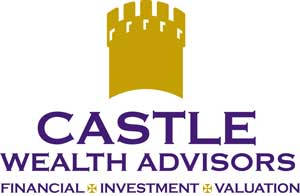 NCBA CLUSA associate member Castle Wealth Advisors designs and implements financial strategies for family held businesses and cooperatives, helping owners and members achieve their long-term goals and protect their business and family assets. Ahead of the financial advisory firm’s June 26 webinar, president and CEO Gary L. Pittsford sent this thought leadership article:
NCBA CLUSA associate member Castle Wealth Advisors designs and implements financial strategies for family held businesses and cooperatives, helping owners and members achieve their long-term goals and protect their business and family assets. Ahead of the financial advisory firm’s June 26 webinar, president and CEO Gary L. Pittsford sent this thought leadership article:
There are approximately 32,000,000 closely-held family businesses in the United States, a high percentage of which belong to one of the thousands of cooperatives that we have in this country. At least 6 to 8 million closely-held family businesses are owned by Baby Boomers between the ages of 60 and 70. Many cooperatives have been in existence for more than 40 years in the U.S. and their members are part of the Baby Boomer segment of our population. Because of that, there is going to be a high turnover of business ownership over the next ten years, and officers and directors of these co-ops are growing more concerned about their aging membership.
Over the last three to five years, we have observed a steady increase in annual activities by many of the cooperatives surrounding education for the family businesses that make up their membership. The officers and directors of these co-ops are growing more concerned about their aging membership, so many of them are having speakers present at their national or regional conventions to talk about succession/exit planning. Some of the cooperatives are also sponsoring webinars, financial articles and other educational materials, and are posting them on their websites for members to easily access.
Cooperatives obviously want to maintain their membership numbers; therefore, helping every member with all aspects of succession/exit planning is important. Topics such as business valuations, selling inside the family, selling outside the family, reducing taxes, retirement income security and protecting the business for the next generation are just some of the topics that many cooperatives are starting to provide their members.
More effort is also being concentrated on the next generation of business owners. It’s not only important for the cooperative leadership to help the members transition their businesses, it’s also important that the next generation of business owners have a smooth and successful transition into their new roles. At some cooperative conventions, classes are being organized for the next generation with topics that are important to those younger family members that are typically between the ages of 25 and 45. The question for them is: “How can I get dad to semi-retire so that I can take over the company?”
If the parents are transitioning the company to one of the children, there are many family issues that must be resolved. Mom and dad are concerned about selling one of their biggest assets to one child and wonder how they will be able to treat the other children fairly? They ask themselves which of their children is best qualified to lead the company for the next 25 years. Who should have 51 percent voting control? If a son-in-law or daughter-in-law is working at the company, how do they fit into this succession planning long-term strategy?
As business owners begin to plan to transition out of their businesses, many of them are also are thinking about their future retirement security and income. Members should consider whether they have saved enough assets over the years to generate adequate retirement income? Do they own the real estate where the company is located and receive rental income? Most of these co-op members have not even tried to estimate what their retirement income would be from the assets that they’ve saved over the past 30 years, which makes answering these questions even more important.
Answering all of these questions is only part of, but an important part that should be considered before members begin the succession/exit planning process. The Officers and Board of Directors of many cooperatives today are discussing all of these ideas and they’re making big efforts to try to help their members plan and execute a successful transition while supporting the new owner and helping position them for success in the years to come.
—By Gary Pittsford, CFP®
President and CEO, Castle Wealth Advisors, LLC


